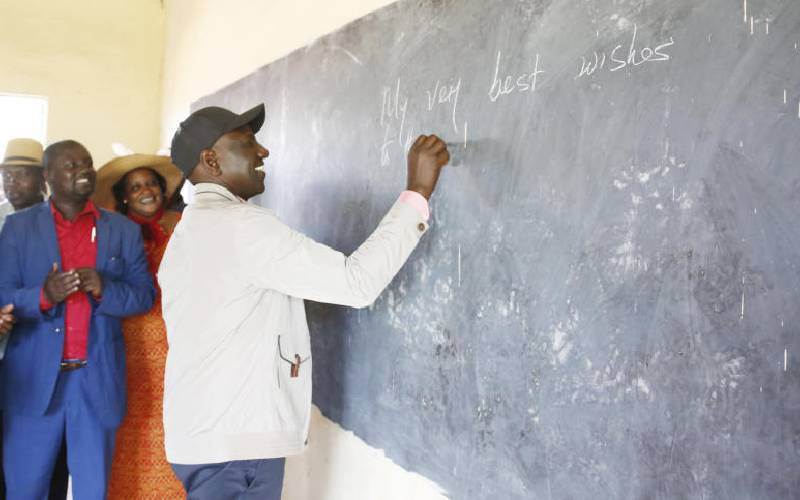KWS Director General Brigadier (Rtd) John Waweru during an interview at Spice FM on March 2, 2022. KWS A Kenya Wildlife Service station has been opened in Rarieda, Siaya County which is expected to end years of human-wildlife conflict, especially crocodiles and hippo attacks. [Denish Ochieng, Standard]
×
The Standard e-Paper
Kenya’s Boldest Voice






